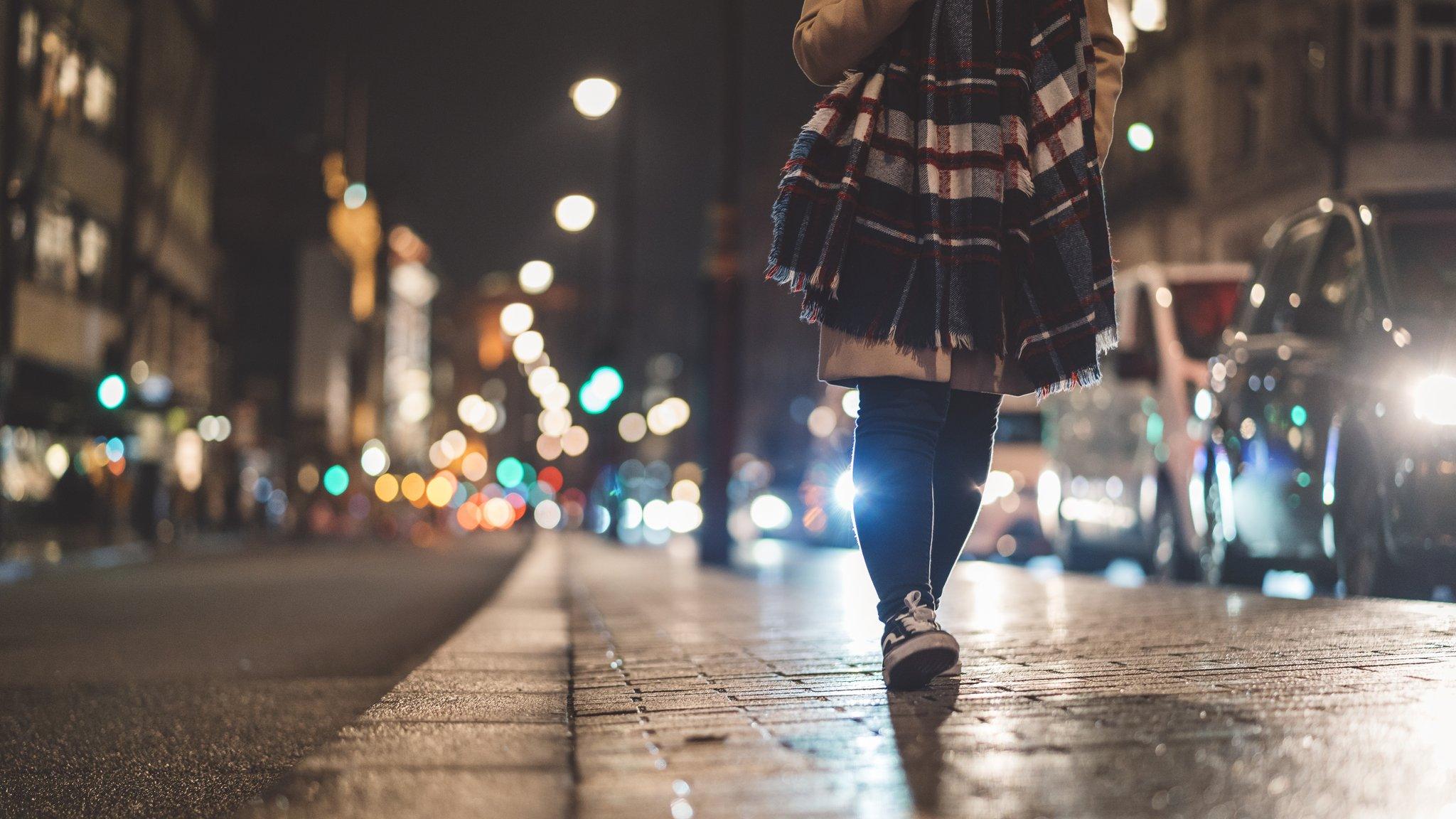Women's safety: 'Man taking pictures through my window scared me'
- Published
The idea was the brainchild of Swansea student Sophie Morgan.
Student Sophie Morgan was terrified when she looked through her curtains to see a man photographing her.
"I opened the curtains and saw a man on my roof outside, filming me and staring right at me," recalled Sophie.
That chilling moment was Sophie's catalyst to start a group that helps women who have been a victim of sexual harassment.
Her group also helps women get home safely at night without feeling frightened.
Sophie had heard of incidents of women being sexually harassed in Swansea.
The university student thought little was being done to help women's safety, so she decided to act.
Safety concerns
The issue of women's safety was brought into sharp focus across the UK following the murders of Sarah Everard and Sabina Nessa in 2021.
Women across the country took to social media to discuss their experiences of walking the streets and the lengths they took to feel safe.
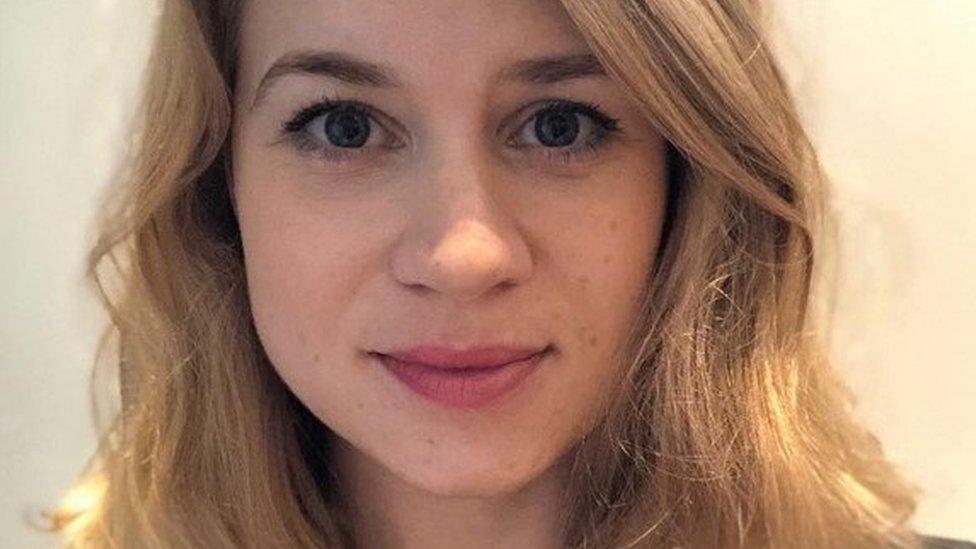
Sarah Everard had been walking to her home in the Brixton area of London when she disappeared
Stories of being followed, harassed, catcalled, assaulted and exposed to resonated with women in Sophie's group who had gone through similar ordeals.
Latest figures suggest a third of UK women had experienced at least one form of harassment, external in the last year.

Primary school teacher Sabina Nessa was attacked as she walked to meet a friend in Kidbrooke, south-east London
"I was living in my student house... hearing a lot of incidents of women being sexually harassed in the street," remembered Sophie, talking about her own experience.
"I was hearing of women being followed, groped, flashed and worse.
'Man outside my window taking pictures'
"One night in the winter, I was lying in bed and there was a noise outside my room so I opened the curtains and there was a man with his phone on the roof outside my window taking pictures.
"As soon as I opened the curtains, he jumped down and drove off. I panicked and phoned the police.
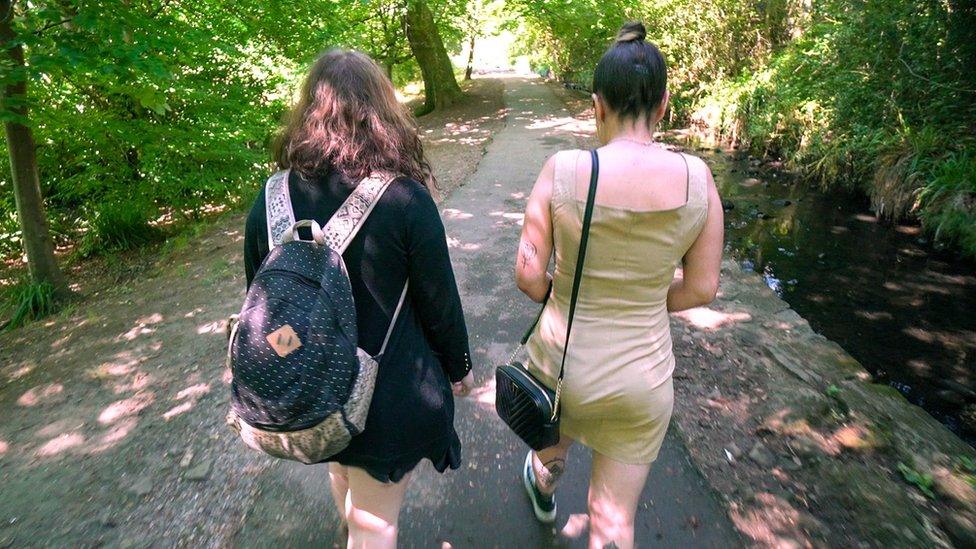
Sophie Morgan and Ileana Mathias feel the authorities should do more to help protect women
"It was scary. The only confidence I did have was I was living in a student house with eight of us there - and that made it a little bit more reassuring but even when I reported it to the police, we had no success in finding who it was."
The childhood studies graduate was living in the Brynmill area of Swansea at the time of the incident.
'Scared and confused'
Sophie soon heard other women's testimonies of being harassed, so set up the social media group to share experiences and warn others.
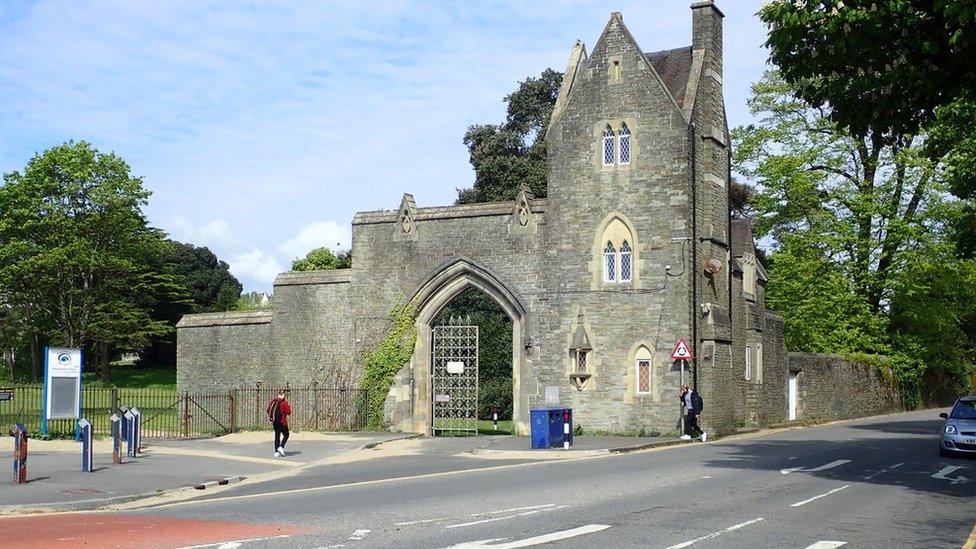
Sophie lived in the Brynmill area, between Swansea's city centre, seafront and the huge Singleton Park
"We were scared, confused, but thought it was time to do something about it," said the 24-year-old.
Sophie's group now has about 1,000 members. They look out for each other - and if one of them is walking home alone at night, someone will either go out and meet them or talk on the phone until they're safely home.
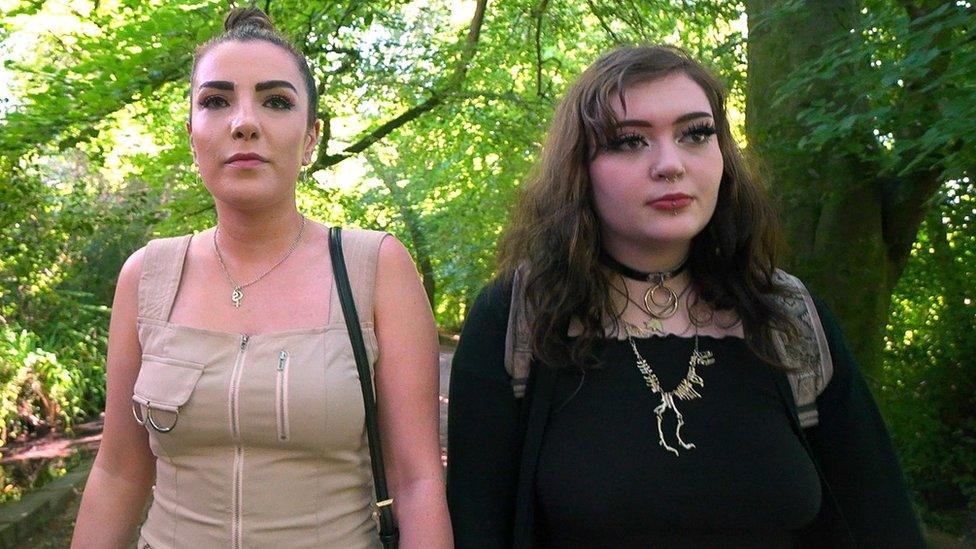
Sophie and Ileana have been the victim of sexual harassment in the last few years
She has also helped organise women's safety protests in Swansea and has support from her local MP who has raised the group's concerns in Parliament.
Cash to 'address issues'
The Home Office also granted the South Wales Police Commissioner more than £180,000, external through its Safety of Women at Night Fund, external, to "address issues" of women's safety in Swansea and develop a sexual harassment campaign to change the attitude and behaviour of men.
Sophie has since moved to Swansea's suburbs where she feels safer but still continues her safety campaign.
"It's become this community of women sharing their experiences in a safe space," added Sophie, originally from Newport.
"We warn one another if something has happened to them and generally support each other.
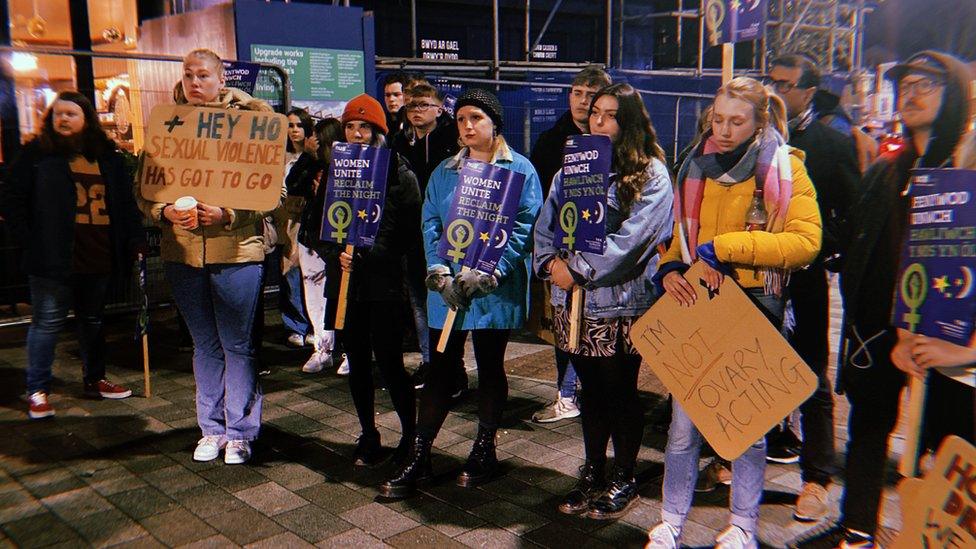
Sophie Morgan helped organise women's safety protests in Swansea
"If someone is walking on their own and feels unsafe then they can send a message and hopefully someone will be free to go and meet them, or talk to them on the phone or just listen to them."
Swansea has also seen a recent rise in alleged drink spiking.
One bartender, who is part of Sophie's group, said she had seen instances of drink spiking herself: "The second alcohol gets involved, it seems to bring the worst out in people."
Ileana Mathias, 24, said she often talks to members of Sophie's group on her walk home from her job in the city's popular Wind Street.
"I find it incredibly heart-breaking that groups like this are necessary. We should be able to walk home without being scared about what could happen to us.
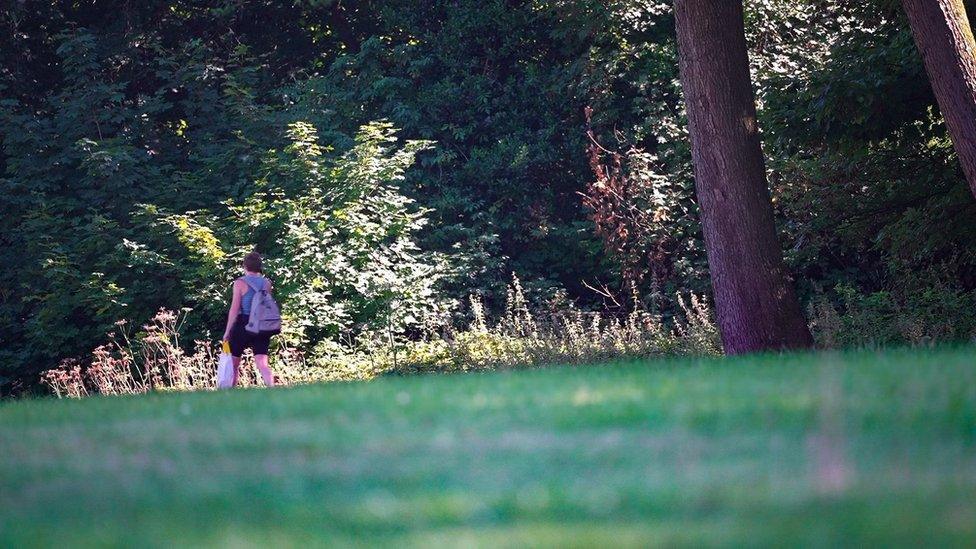
Campaigners want improved lightning in Swansea's large Singleton Park to make it feel safer for women
"It's deeply concerning and unfortunate that we have to put these things in place because the people that are supposed to protect us don't really do that much protecting - and don't take things that seriously."
Better lighting and greater police presence call
Sophie has worked with Swansea University, the local council and South Wales Police on trying to improve women's safety in the city but says women in her group tell her they "don't feel confident going to the police, they think nothing happens".
Campaigners have called for more police patrols, a greater police presence in the city centre and improved lightning in the large Singleton Park near the centre of Swansea as Sophie says it's "not comfortable" walking through there in the dark.
Watch: Can this app help to keep women safe on the streets?
Sophie said her local MP has joined their protests and urged women to keep highlighting issues so he could raise them in the House of Commons.
'Endemic problem'
"I heard some really awful stuff," said Geraint Davies, Labour MP for Swansea West.
"The common theme was these girls didn't feel they could turn to the police to report what was happening.
"The police need better training and need to believe these women when they come forward with their experiences, and don't just tell them 'oh you're drunk' and dismiss their claims.
"It's an endemic problem. There needs to be more female police officers and change of culture at the top to stamp this kind of behaviour and these incidents out of our society."
'Women's safety is a priority'
South Wales Police said tackling violence and abuse against women and girls was a "long-standing priority" and their Assistant Chief Constable Jenny Gilmer said the force "recognise that concern regarding personal safety and violence is as great as it has ever been".
Detectives said all reports to police were "extensively investigated with officers looking at CCTV, as well as speaking to victims and potential witnesses, and looking into medical evidence".
"Every weekend we have a robust and proactive policing plan in place to protect vulnerable people, identify potential offenders and support victims, as well as providing a visible and reassuring presence in Swansea city centre," added local chief inspector Mark Brier.
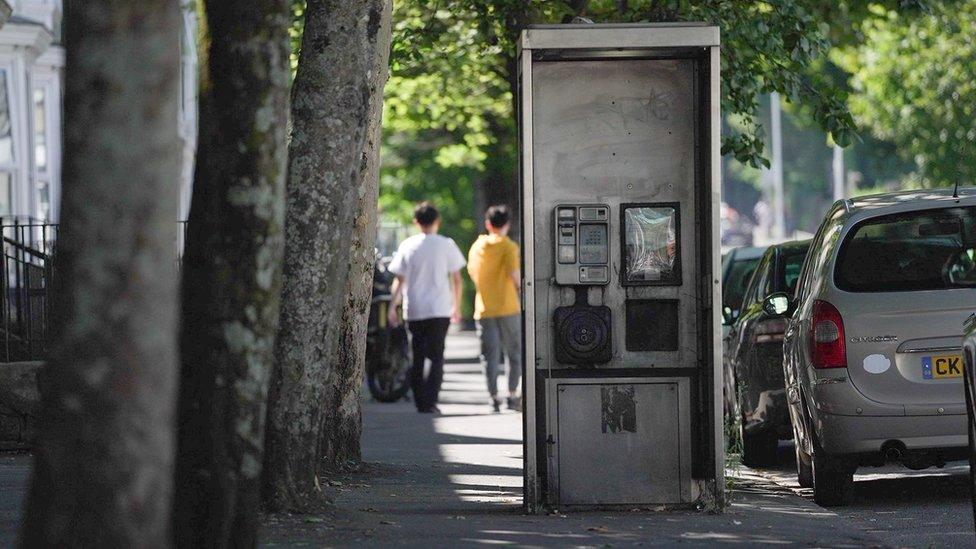
Home Office money have been granted to help "address issues" of women's safety in Swansea
He said a project runs in the city centre on busy nights to "provide reassurance and medical assistance to victims" and "improves responses to incidents of drink spiking, sexual harassment, and assault".
The Crown Prosecution Service issued new guidance to prosecutors in Wales and England which aims to prosecute people who are responsible for sexual harassment in the street.
New guidance 'doesn't go far enough'
The CPS suggests even incidents such as "cat-calling" could be classed as offences under existing public order law.
But Welsh Women's Aid said the new guidance doesn't go far enough as its chief executive says she "struggles to celebrate a commitment to use existing powers better".
"If we already had this legislation in place, why wasn't it being used already?" added Sara Kirkpatrick.
Archive: The university footballers offering to walk women home and make them feel safe
"We have not seen resounding success with prosecution of serious forms of violence against women and girls like sexual abuse or domestic violence, so how this guidance is put into action for sexual harassment is a really big question.
"It's becoming increasingly common for women to use techniques to keep themselves safe. It's so sad that we are here in 2022 and women are still having to take responsibility to protect themselves from predators.
"We run a course to address violence against women and girls we're seeing more people sign up for those courses... women feeling like they need to protect themselves."
A CPS spokesperson said: "Women have the right to go out without fear of harm. Our updated legal guidance makes clear that this intimidating behaviour can be a criminal offence.
"We are determined to see more perpetrators brought to justice. Harassment and spiking has no place in our society, and the CPS will not hesitate to prosecute these appalling offences whenever our legal test is met."
If you have been affected by any of the issues in this story, the BBC Action Line has links to organisations which can offer support and advice
- Published17 August 2022
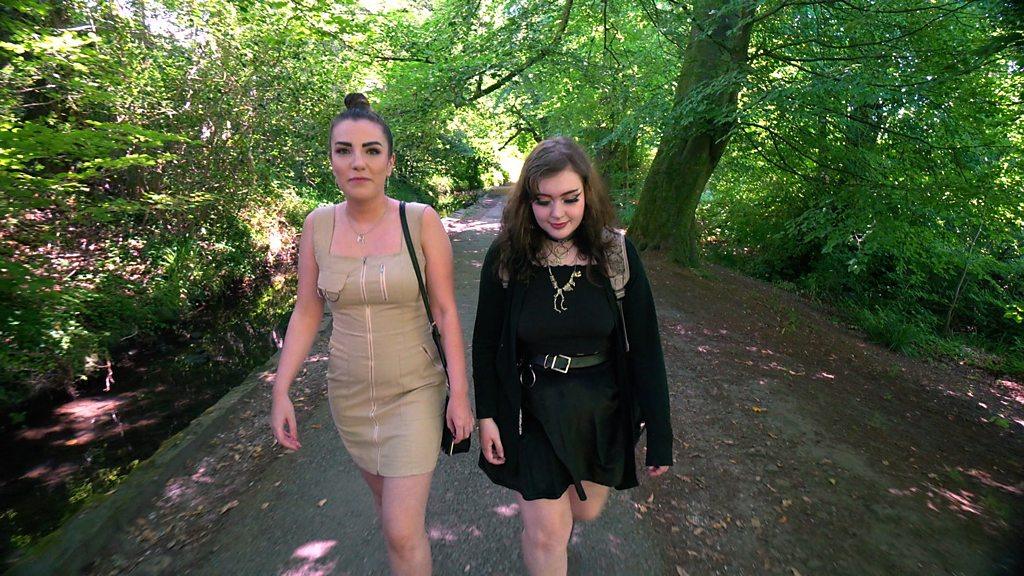
- Published3 March 2022
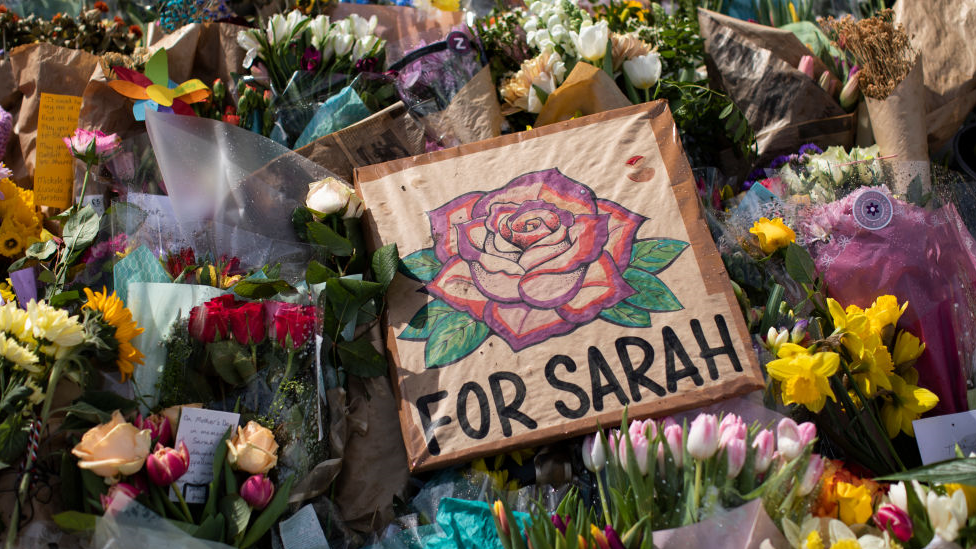
- Published25 September 2021
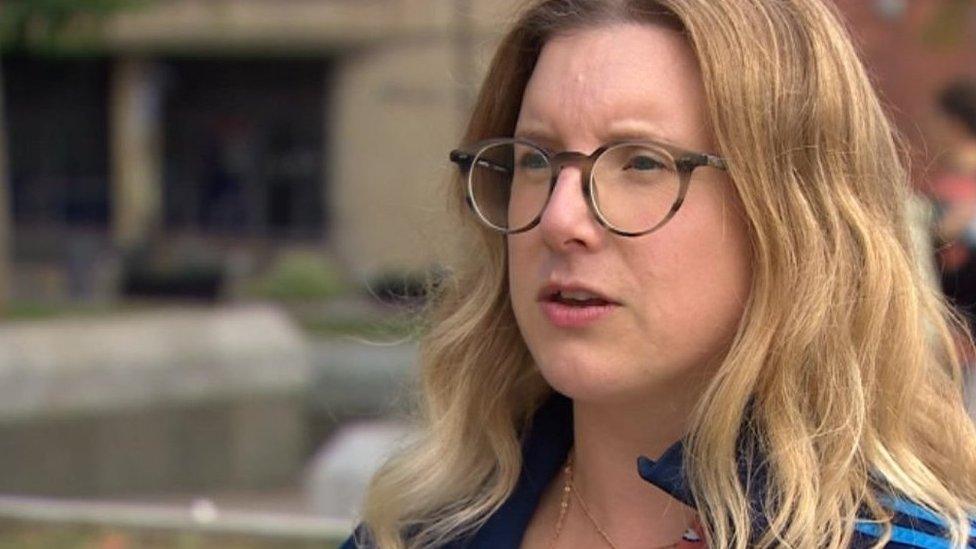
- Published25 September 2021
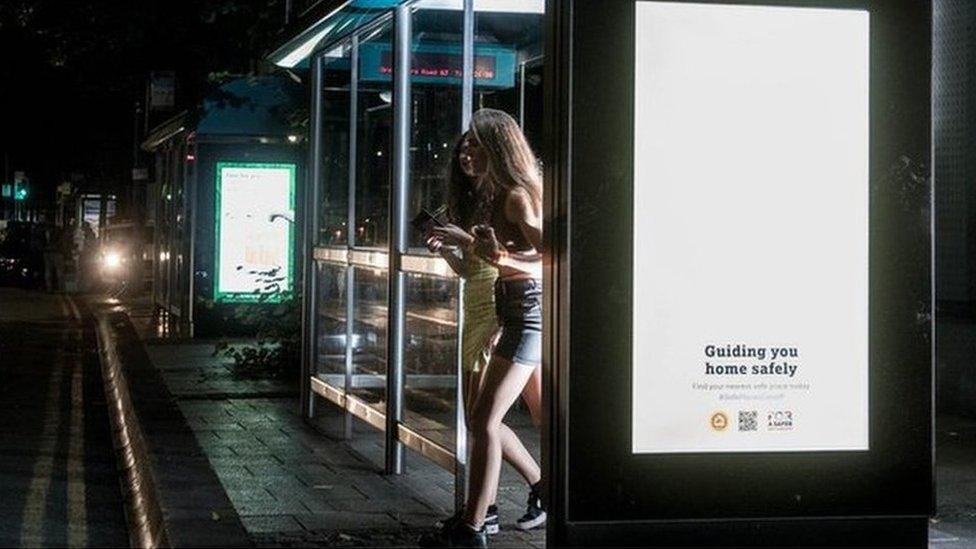
- Published24 September 2021
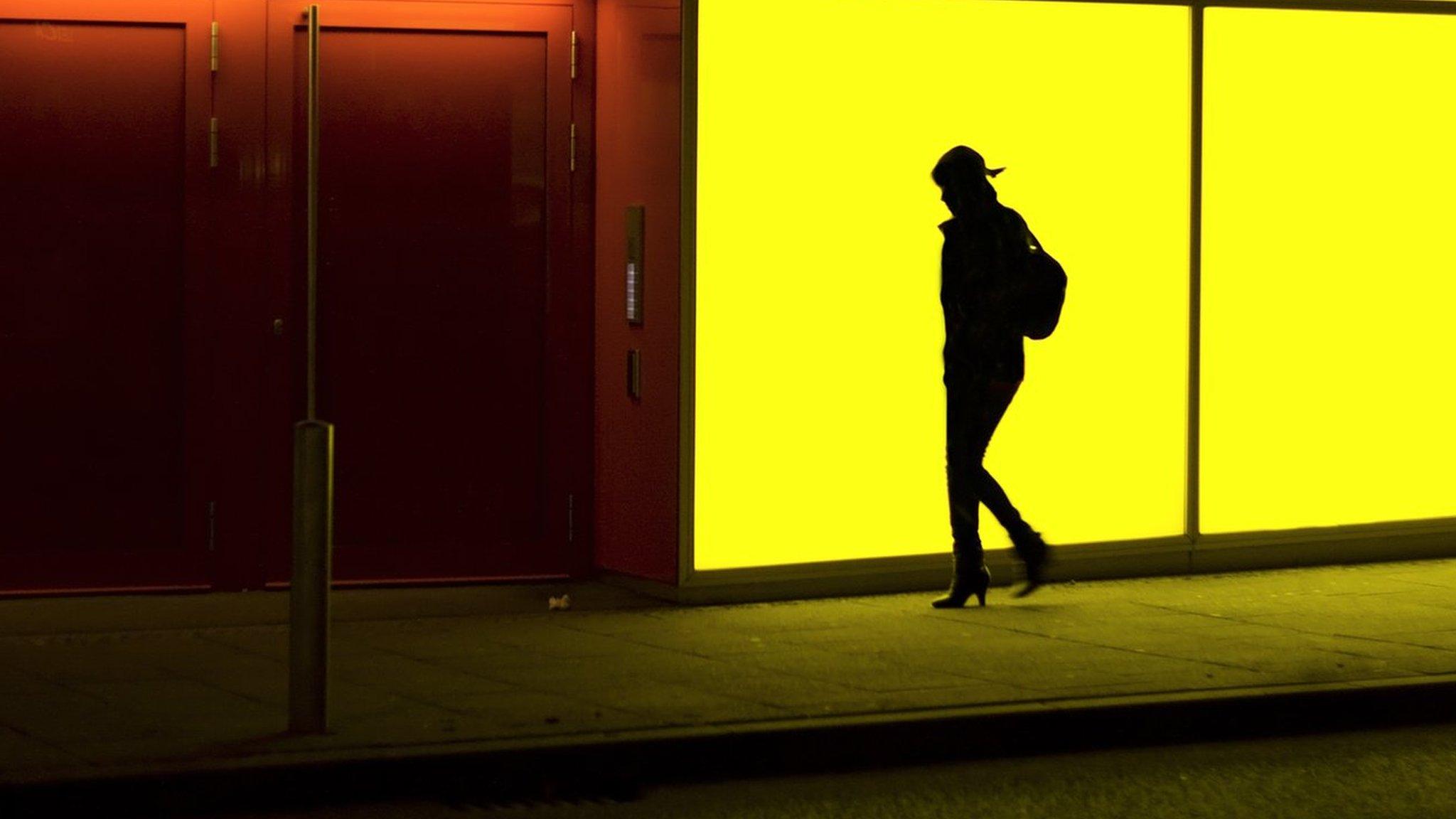
- Published5 May 2021
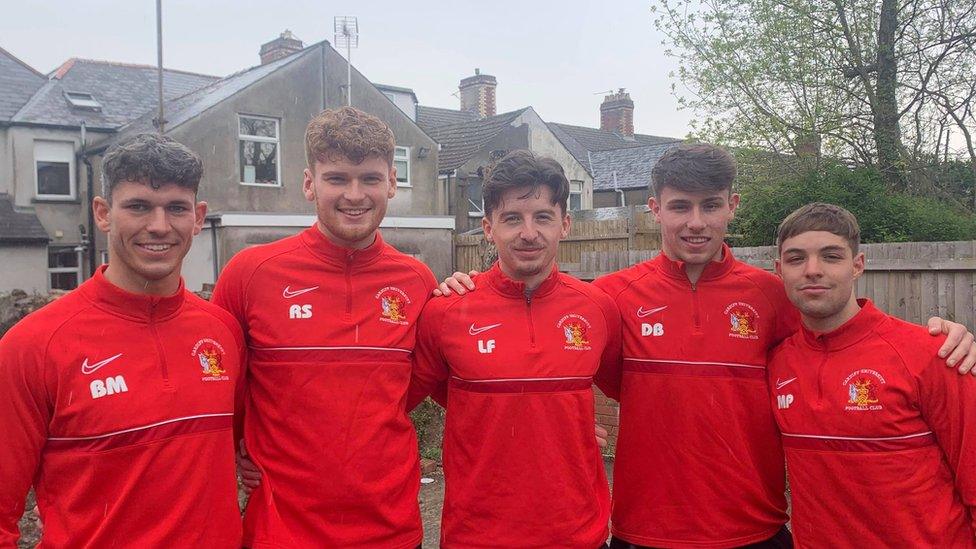
- Published16 March 2021
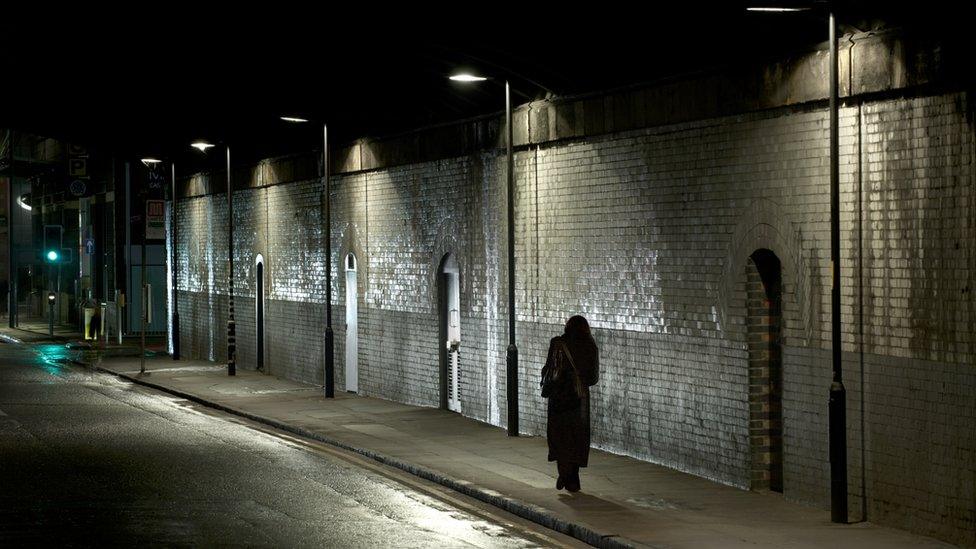
- Published11 March 2021
